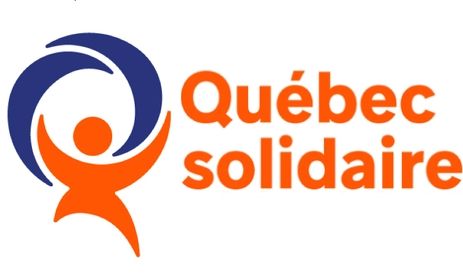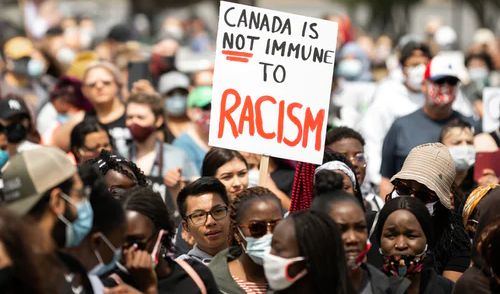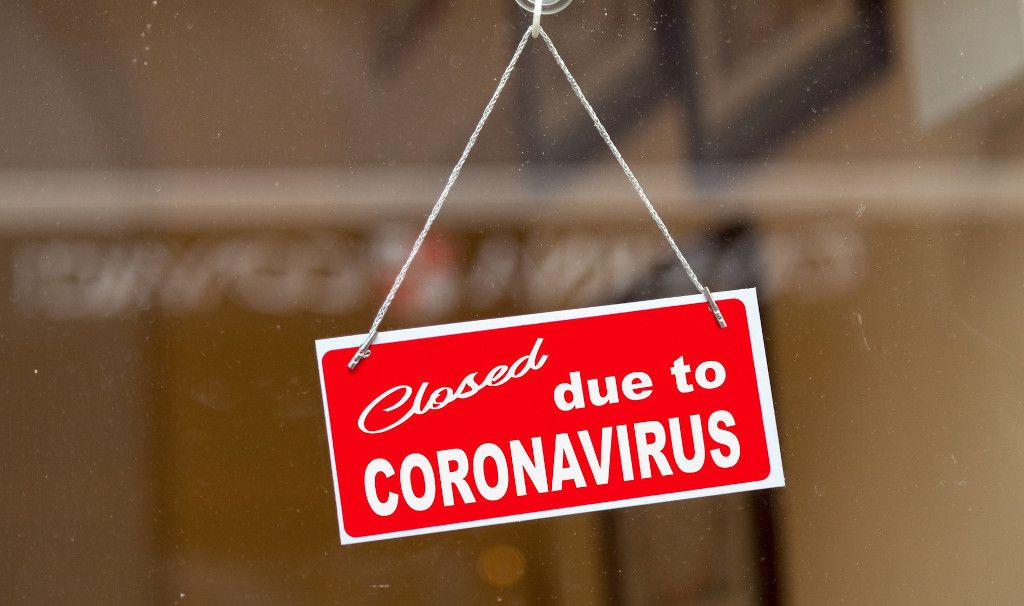Julien Daigneault is a member of Alternative Socialiste (ISA in Quebec).
Recently, right populists and nationalists came together to defend the leadership of Québec Solidaire (Québec’s left leaning provincial party). This is uncharacteristic of them considering the usual ease with which they put down the “radical” left party. However, when the legitimacy of hierarchical structures is questioned, its guardians suddenly find themselves on the same team.
How dare we, simple party members, question the wisdom of our leaders during a “national emergency?!” Behind the crocodile tears hides the desire to maintain the legitimacy of top-down “democracy.” These commentators know that to maintain the dominance of their vision of society, political leadership must have the party members’ passive acceptance. From this axiom comes the unspoken rule that any criticism of the party must be done internally, under control, and must be approved by those on top.
Unfortunately for them, the criticisms being heard often come from the same people within the party including Alternative Socialiste, ISA’s section in Québec. These members have a history of derailing the electoral opportunism of the leadership, for instance stopping a proposed cooperation with the centre-right nationalist party, the Parti Québécois.
The Complicity of QS
During the pandemic, the parliamentary wing of Québec Solidaire (QS) completely withheld any and all criticism towards Québec’s prime minister, Francois Legault, of the Coalition Avenir Québec (CAQ), a right populist party. The strategy was to leverage public support into behind-the-scenes lobbying to be invited in the great national unity that Legault proclaimed on television. This so-called unity was a dead end from the start. The parties of the ruling class will not include a party like QS, which has a program that advocates anti-capitalist measures and the independence of Québec. However, if a party does not support the government during a national emergency, then the media will claim it is like an immature child disrupting what the responsible adults are working on.
This presents a false dichotomy to the working class between a bad choice and a caricature. For instance, a few years ago, the choice was between austerity or economic crisis, or even further back, between the war measures act and FLQ terrorism. In each case, the working class are expected to shake hands with the bosses, while the government enacts policies that are anti-working class as it tries to stabilize the for-profit system that is crumbling under its contradictions. Today, all propaganda aims to legitimize policies to revive the economy for the benefit of big business at the expense of the lives of the working class.
Because QS shapes its political strategy around media coverage, it is deathly afraid of being labelled as “angry leftists” by bourgeois media. However, in following this strategy, QS missed a depressing number of opportunities to denounce the lies, inconsistencies and the catastrophic, if not criminal, management of the pandemic by the CAQ.
Economic Nationalism
QS has opted to try to gain coverage from the capitalist media with electronic press releases. A theme of QS’s approach that is shared with the government is economic nationalism. This claims that to stop the crisis getting worse, the solution is to consume locally and invest in Québec-owned small and medium sized businesses.
Thus, began QS’s quest to save, to give a few examples, small regional media companies, small landlords, microbrewers and slightly richer greenhouse agriculture companies. This approach stuck QS into a discourse that depends on Ottawa for financial help and also defends the interests of many multinational corporations. Entangled in its own rhetoric, QS could hardly put forward its program that calls for the independence of Québec.
Meanwhile, thousands of working-class people lost their jobs. Others were forced to work for minimum wage with inadequate protective equipment as they are considered “essential workers.” More than 4,400 elderly people died, the overwhelming majority of these in private nursing homes. A quarter of COVID infections in Québec were to healthcare workers. This number broke all records for sick leave in the healthcare system, a consequence of the lack of precautionary policies and adequate protective gear.
Missed opportunities
The public debate around the necessity to nationalize the nursing homes was of no interest to QS. It decided instead to take a lone wolf approach and defend a poorly formulated decentralization strategy. The nationalization of all pharmaceutical services, a part of QS’s program, did however find its way into some press releases. The parliamentary wing will attempt to propose a motion this autumn to that effect.
Meanwhile, 500,000 public workers have been seeking a new collective agreement since last March. These workers and their union representatives have been organizing dozens of protests everywhere in Québec since the beginning of the pandemic. Despite calling itself “the party of the streets and the voting booth,” QS has not yet mentioned nor supported these workers engaged in struggles.
The mass protests against racial profiling and sexual harassment only resulted in a few symbolic demands from the leadership of QS.
In a petty manner, mainstream conservative pundit Joseph Facal argues that the moralizing discourse of QS is only addressed to the petite-bourgeoisie of Montreal while ignoring the working class of the province. He is not wrong. However, there exists within QS a socialist tendency that opposes the current party line. This tendency defends an approach that would see QS entrench itself in the struggles of the working class.
The socialist opposition in QS
It is not a huge surprise that the two main criticisms quoted in one of the main newspapers, La Presse, came from members of Alternative Socialiste (AS). Their statements at QS’s congress were drafted to encapsulate, within the allotted two minutes, the anger many QS members feel against the more or less disconnected party leadership. This criticism was then echoed by many more people.
This unrest has been brewing for years. Members simply want their elected representatives and public figureheads to publicly defend what is already in the party’s program. There is plenty of political material within it to intervene on the ground in a productive and efficient way.
Many Members of the National Assembly (elected representatives in Québec) claim that they had been active on the ground during the pandemic. What AS defends is activity that helps the struggles of the working class; this means more than passive support from figureheads during protests or politically transparent visits to soup kitchens. The other parties are already doing those activities and have been for years. The difference is that they don’t purport to be “doing politics differently.”
From a socialist perspective, a “grassroots party” should help the working class and youth to organize and to lead struggles with concrete objectives. Such a party helps empower people to build political leverage against their enemies to win, even if these wins can only be limited within this economic system. More important than speeches, the representatives of QS have a responsibility to offer political leadership to party members, no matter when – pandemic or not. This is especially the case as a major crisis of capitalism is developing.
AS members who participate in QS have been successfully embodying this approach for years. For example, AS gathered 22,000 signatures on the petition for 15plus.org to raise minimum wage to $15 an hour. AS has built assemblies within QS to defend the right of people to wear religious symbols (Option B).
A step in the right direction
During the September 12 national congress, party delegates were able to vote on and begin, against the will of the party’s leadership, a new political campaign focusing on popular mobilization. However, this approach is not even considered when the leadership unveils its PR strategy going forward. The strategy had already been decided before the congress, the party’s leadership would visit essential workers in their place of work.
Party members fear that what they voted on will be ignored by the leadership. They feel that the leadership considers them nothing more than rubber stamps for what the leadership wants to push forward. A failed campaign, named Ultimatum 2020, was envisioned this way. This demonstrates that there are large democratic questions that need to be answered within the party.
Mario Dumont, a right-leaning pundit, supported the party’s apparatus in letting go of the final objectives of the Ultimatum 2020 campaign: blocking parliamentary proceedings in October of 2020. The fact that no members opposed the cancellation of this campaign shows that it never actually found an echo within the membership.
To avoid continuing to lose supporters, QS’s leadership and elected representatives need to base their actions on the party’s anti-capitalist program. The party must go forward with the goal to build the foundations for a green and socialist economy, the only solution to the economic, social, and environmental crisis.
If they fail in that endeavour, QS risks being swept aside in the next elections or worse, entering a coalition with a liberal party and contributing to the implementation of further austerity measures. Without an alternative to this system being put forward, the worsening economic crisis will push people towards the populist right and the CAQ. The burgeoning mobilization of the anti-maskers should serve as a warning for things that may come.
Acting in the current context
At present, the only available democratic political structures in Québec to fight against the right leaning pundits and the exploitative system they defend are the local and regional organs of QS.
The general wording of the new political campaign within QS opens the door for an open defence of the interests of the working class. Let us focus on what can be done, right now, to help us all get out of this crisis, this crisis of capitalism!
- Aggressively tax the rich to finance free, accessible and high-quality public services!
- Fight for fixed salary increases in the public sector that are indexed to the rising cost of living!
- Fight for patient/healthcare worker ratios that are safe and abolish obligatory overtime!
- Fight for free public transport and nationalize the transport industries!




